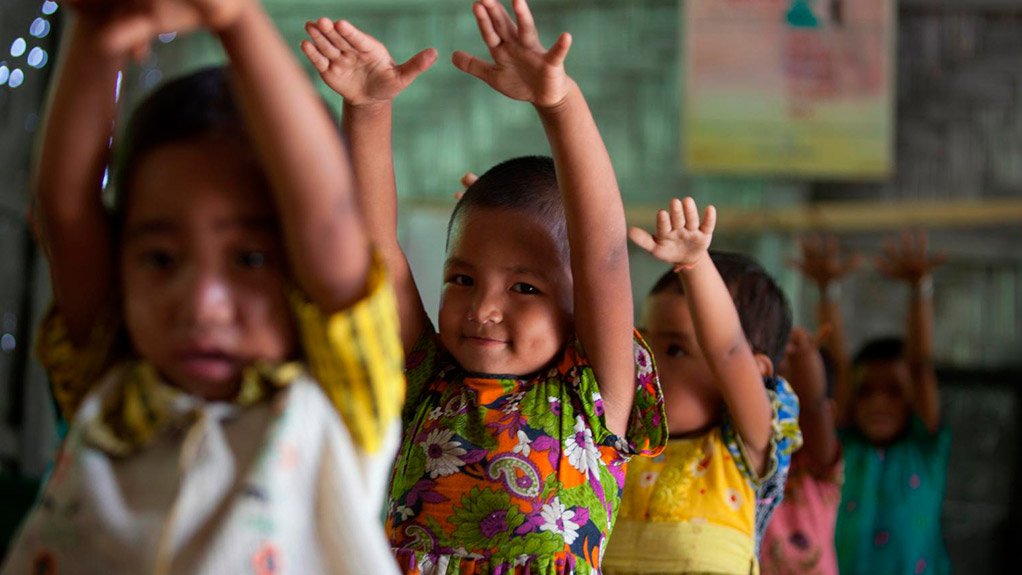/ MEDIA STATEMENT / The content on this page is not written by Polity.org.za, but is supplied by third parties. This content does not constitute news reporting by Polity.org.za.
The Portfolio Committee on Basic Education today received an update briefing on the migration of early childhood development (ECD) from the Department of Social Development to the Department of Basic Education (DBE) and noted progress but raised questions about whether its implementable.
The committee also received a briefing on the impact and implications of the President’s 2024 State of the Nation Address.
Committee Chairperson Ms Bongiwe Mbinqo-Gigaba said the committee has noted the progress made by the DBE and commends them for it. “The intentions are honourable. However, serious questions remain about the readiness and preparedness for the move when the migration took place.”
The committee heard that around 1.3 million children aged 3 to 5 years old are not yet attending any form of early learning and only 45% of children in early learning are developmentally on track. The DBE informed the committee that as part of its plans to address this, it intends to implement a new mass registration drive and table the Children’s Amendment Bill, to support the registration of over 20 000 early learning programmes.
The committee heard that the Mass Registration Drive will target 20 000 unregistered ECD programmes and will provide them with conditional registration for one year. During this year, the DBE and municipalities will support ECD programmes to become compliant through the provision of pre-registration support packs, after which they will be required to apply for full registration.
All ECD programmes will need to register according to legislation. This includes independent community-based programmes, private programmes, non-profit organisations and micro-enterprises. The DBE was clear to state that registration does not equate to funding.
It further stated that short-term legislative reform for ECD is needed, to address the defects of the Children’s Act in order that the DBE can make early progress towards its ECD goals and priorities. The DBE assured the committee that it has comprehensively redrafted the Bill with input from the Technical Task Team. The new Bill is called the Children’s Amendment Bill 2023 and is expected to be advertised for public comment this month.
The committee heard that the 2030 strategy for early learning includes scaling up access in order to achieve universal access to quality ECD by prioritising the most vulnerable children. The DBE intends to deliver ECD on the six social justice principles: access, quality, redress, equity, inclusivity and efficiency.
Its plans includes implementing the National Parenting Programme by training 16 000 parents in the most vulnerable communities. The DBE has partnered with Hope World Wide to support a further 2 200 parents in the most vulnerable communities to understand more about playful parenting practices.
The DBE told the committee that holistic ECD services are dependent on strong coordination and integration. The Inter-Ministerial Committee, as proposed in the National Integrated ECD Policy (2015), includes six core departments – the departments of Basic Education, Health, Social Development, Cooperative Governance and Traditional Affairs, National Treasury, and Planning, Monitoring and Evaluation.
The DBE conceded that the current funding for ECD is inadequate. The overall ECD budget for the 2023/24 financial year was R3.912 billion, this entailed R205 million in the national budget vote, R1.184 billion in the Conditional Grant, and R2.523 billion through the Equitable Share. The DBE said the ECD allocation is insufficient to cover all children currently in ECD programmes and eligible for benefitting from the ECD subsidy. A substantial increase in the ECD allocation is required to cover all children eligible to receive the subsidy, as access is continuously expanded.
Ms Mbinqo-Gigaba said although the committee has noted the progress made thus far, it still has questions. “We need to be honest. When the migration was conceived, did you consider if it would be implementable? … We need to be honest where there are shortcomings. What are the plans for learners with special needs in ECD? These plans are clearly noteworthy with great intentions, but we are concerned about the planning phase prior to migration.”
Issued by the Parliamentary Communication Services on behalf of the chairperson of the portfolio committee on Basic Education, Ms Bongiwe Mbinqo-Gigaba
EMAIL THIS ARTICLE SAVE THIS ARTICLE ARTICLE ENQUIRY
To subscribe email subscriptions@creamermedia.co.za or click here
To advertise email advertising@creamermedia.co.za or click here











